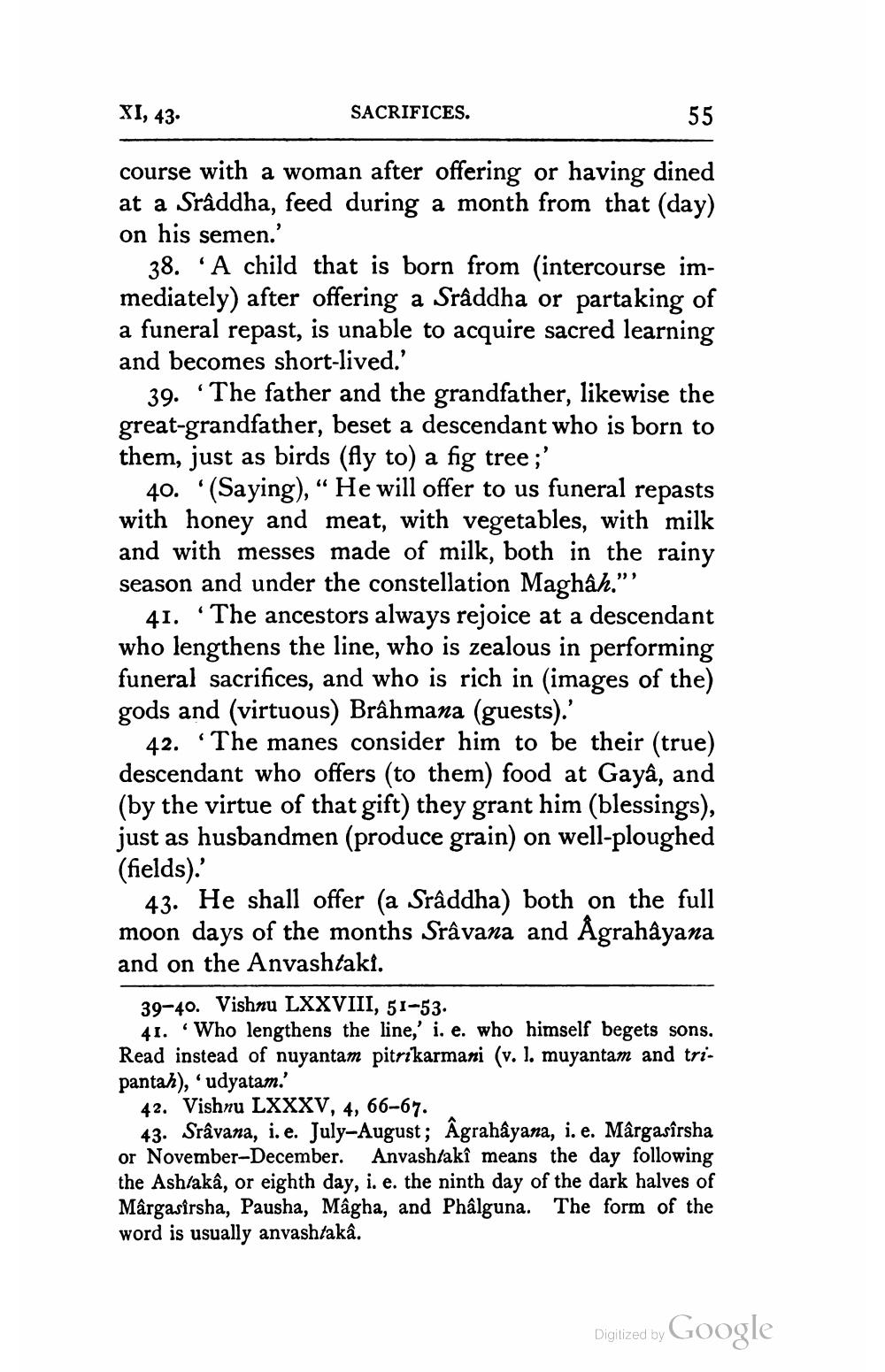________________
XI, 43.
SACRIFICES.
55
course with a woman after offering or having dined at a Sraddha, feed during a month from that (day) on his semen.'
38. A child that is born from intercourse immediately) after offering a Sraddha or partaking of a funeral repast, is unable to acquire sacred learning and becomes short-lived.'
39. “The father and the grandfather, likewise the great-grandfather, beset a descendant who is born to them, just as birds (fly to) a fig tree;
40. (Saying), “ He will offer to us funeral repasts with honey and meat, with vegetables, with milk and with messes made of milk, both in the rainy season and under the constellation Maghah.”
41. “The ancestors always rejoice at a descendant who lengthens the line, who is zealous in performing funeral sacrifices, and who is rich in (images of the) gods and (virtuous) Brâhmana (guests).
42. The manes consider him to be their (true) descendant who offers (to them) food at Gayâ, and (by the virtue of that gift) they grant him (blessings), just as husbandmen (produce grain) on well-ploughed (fields).'
43. He shall offer (a Sraddha) both on the full moon days of the months Srâvana and Agrahayana and on the Anvashtaki.
39-40. Vishnu LXXVIII, 51-53.
41. Who lengthens the line,' i. e. who himself begets sons. Read instead of nuyantam pitrikarmani (v. I. muyantam and tripantah), udyatam.'
42. Vishnu LXXXV, 4, 66-67.
43. Srâvana, i.e. July-August; Âgrahầyana, i. e. Mârgasîrsha or November-December. Anvashtakî means the day following the Ashtakâ, or eighth day, i. e. the ninth day of the dark halves of Mârgasirsha, Pausha, Mâgha, and Phâlguna. The form of the word is usually anvashtaka.
Digitized by Google




